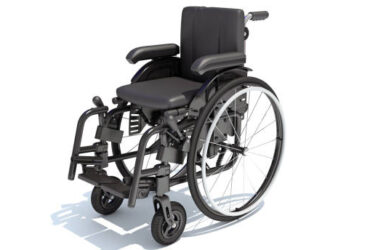Some people believe that exposure to blue light from electronic devices and screens is harmful, and may even cause eye cancer. So, what can you do to protect your eyes from this harmful light? The simple answer is to use sunglasses or similar equipment when you’re working on your device in bright sunshine or looking at a screen that’s brightly lit. You can also try turning the brightness down on your device or screen. And if you’re worried about your eyes all the time, consider using an eye mask whenever you’re using a screen for extended periods of time.
What is Blue Light?
Blue light is a type of light that is emitted by blue objects and can be harmful to the eyes. The wavelength of blue light is shorter than other colors, which makes it more damaging to the eyes. The damage done by blue light includes changing the color vision in people, causing eye fatigue and headaches, and even causing blindness. To protect your eyes from blue light, try to avoid spending time in areas with lots of blue lights, wear protective eyewear when using devices that emit blue light, and avoid using screens that emit blue light late at night.
Read More : How rare are Sanpaku Eyes
The Effects of Blue Light on Eyes
Research suggests that blue light from screens and other electronic devices can have negative effects on the eyes. This blue light can cause eye fatigue, headaches, and even migraines. In addition, it has been linked to problems such as macular degeneration and cataracts. The best way to avoid these problems is to limit exposure to blue light from screens. Here are some tips for protecting your eyes:
-Use a screen protector: A screen protector is a simple solution that can help protect your eyes from the harmful effects of blue light.
-Use a filter: You can also use filters on your phone or computer screen to reduce the amount of blue light reaching your eyes. Filters are available in different colors, so you can find one that works best for you.
-Stay away from bright lights: Bright lights, such as those found in sunlight or streetlights, can also be harmful to the eyes. try to avoid them when possible.
Also Check it : Celebrities with Sanpaku Eyes
How Does Blue Light Damage Eyes?
Blue light is the most common type of light that is seen by people. It’s present in sunlight and some electronic screens. It’s also found in some office lighting and some backlit displays like TVs.
Studies have shown that blue light can damage eyes. It can cause problems with how the eye gathers information, which can lead to a loss of vision or other problems.
There are ways to protect your eyes from blue light. You can use darker glasses or filters when you’re using electronics that emit blue light, and you can avoid looking at screens during the hours when sunlight is strongest.
How to Protect Your Eyes from Blue Light
When looking at electronic screens, avoid staring at blue light for extended periods of time. The effects of blue light on the eyes are cumulative and can be harmful over time. One option is to use an eyeglasses filter that blocks blue light. You can also use sunglasses or a computer screen filter. If you work near a bright light source, wear protective eyewear includingsunglasses or a computer screen filter.
When it comes to eye health, there’s no one right answer. But experts agree that protecting your eyes from blue light is a good idea. Blue light is the type of light that’s responsible for causing eye fatigue and can lead to problems like macular degeneration (a leading cause of blindness in older adults). Here are four ways to protect your eyes from blue light:
1) Use a screen filter at work or when you’re using a computer. A filter blocks out blue light, which will reduce eye fatigue and help keep your eyes healthy.
2) Wear sunglasses during the day. Sunglasses protect your eyes by reducing the amount of sunlight that gets into them. This helps protect against oxidative damage, which can lead to vision problems like cataracts and age-related macular degeneration.
3) Keep an eye on the time. If you’re looking at screens all day long, make sure to take regular breaks in between tasks so that your eyes have time to rest and relax.
4) Use artificial lighting sparingly. Artificial lights emit harmful blue light, which can also cause eye fatigue and other problems. When possible, try to use natural sources of light instead, like candles or lamps with low wattage bulbs.
Also Read : What Causes Sanpaku Eyes
Tips for Avoiding Blue Light at Work
If you work in a office with lots of artificial light, there are some simple things you can do to help protect your eyes from the harmful blue light. First, ask your boss to install blue blockers in the office. Second, use an app like f.lux to adjust the color of your computer screen to reduce the amount of blue light exposure. And finally, wear sunglasses when working outside if possible.
There’s a good reason to avoid blue light at work: it can damage your eyes. Blue light is the type of light that comes from displays and devices like laptops and smartphones. It’s especially harmful to your eyes because it can cause inflammation and even cataracts. Here are some tips for avoiding blue light at work:
1. Use a screen filter
One way to reduce the amount of blue light exposure is to use a screen filter. There are many different types of filters available, including sunglasses-style filters and software that you can install on your computer or smartphone. Filters can help block out blue light while you’re working, so you can keep your eyes healthy and protected.
2. Use an eye mask
Another way to reduce the amount of blue light exposure is to wear an eye mask when you’re working. Eye masks are often made from materials like plastic or cloth, which help block out excess sunlight and other forms of blue light. They’re also comfortable to wear, so they may be a good option if you find yourself spending a lot of time looking at screens or working in bright environments.
3. Take breaks every hour or two
If possible, take regular breaks during the day when you’re working with screens. This will give your eyes time to rest and avoid getting overexposed to blue light. If you have to take longer breaks, try shielding yourself from blue light with sunglasses or an eye mask.
4. Use a computer that has a low blue light setting
If you can’t access a screen filter or wear an eye mask, one option is to use a computer that has a low blue light setting. Computers with low blue light settings often have a “nightlight” feature that helps reduce the amount of blue light exposure. Be sure to check the specifications of the computer you’re considering to make sure it has a low blue light setting.
5. Limit your time on devices
Finally, be aware of how much time you spend on devices each day. Limit your time on devices to short periods and avoid using them for extended periods of time when possible. This will help reduce the amount of blue light exposure your eyes are subjected to.
Conclusion
Blue light is ubiquitous in modern society and can have negative effects on our eyes. Our eyes are especially sensitive to blue light because it disrupts the production of melatonin, one of our body’s natural sleep aids. Excessive exposure to blue light during the day can lead to eye fatigue, blurred vision, and even headache. To protect your eyes from blue light and improve your overall health, try using an app like flux to shift the color of your screen toward a warmer hue after sundown.











